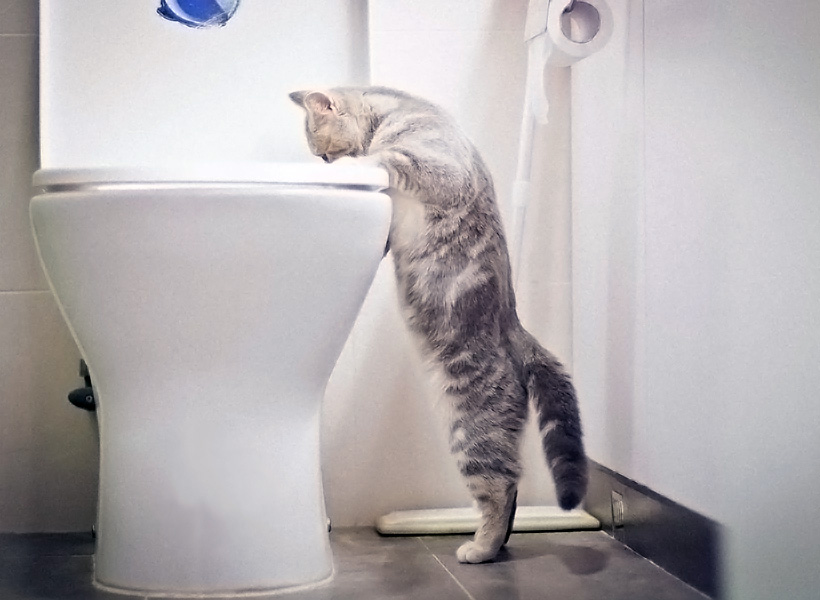Prevent Plumbing Problems: Don't Flush Cat Poop Down Your Toilet - Expert Guidance
Prevent Plumbing Problems: Don't Flush Cat Poop Down Your Toilet - Expert Guidance
Blog Article
The publisher is making a number of good pointers relating to Don’t flush cat feces down the toilet as a whole in the article on the next paragraphs.

Introduction
As pet cat proprietors, it's important to bear in mind how we take care of our feline buddies' waste. While it may seem practical to purge pet cat poop down the commode, this method can have detrimental consequences for both the atmosphere and human health and wellness.
Alternatives to Flushing
Luckily, there are much safer and more liable means to dispose of feline poop. Consider the following choices:
1. Scoop and Dispose in Trash
One of the most typical technique of taking care of cat poop is to scoop it into a biodegradable bag and toss it in the trash. Make certain to utilize a committed trash scoop and deal with the waste immediately.
2. Usage Biodegradable Litter
Select biodegradable cat clutter made from products such as corn or wheat. These litters are eco-friendly and can be securely taken care of in the trash.
3. Bury in the Yard
If you have a yard, take into consideration hiding feline waste in a designated location far from vegetable gardens and water sources. Make sure to dig deep adequate to stop contamination of groundwater.
4. Set Up a Pet Waste Disposal System
Invest in a pet dog waste disposal system specifically designed for feline waste. These systems utilize enzymes to break down the waste, lowering odor and ecological effect.
Health Risks
Along with ecological worries, purging pet cat waste can also position wellness risks to people. Feline feces might consist of Toxoplasma gondii, a bloodsucker that can create toxoplasmosis-- a potentially severe health problem, specifically for pregnant ladies and individuals with damaged body immune systems.
Ecological Impact
Purging pet cat poop presents damaging virus and bloodsuckers into the water supply, posturing a significant risk to marine ecosystems. These impurities can adversely impact aquatic life and compromise water quality.
Final thought
Responsible family pet possession prolongs beyond offering food and sanctuary-- it likewise involves proper waste monitoring. By refraining from flushing feline poop down the commode and choosing alternative disposal approaches, we can decrease our ecological impact and secure human wellness.
Why You Should Never Flush Cat Poop Down the Toilet
A rose by any other name might smell as sweet, but not all poop is created equal. Toilets, and our sewage systems, are designed for human excrement, not animal waste. It might seem like it couldn’t hurt to toss cat feces into the loo, but it’s not a good idea to flush cat poop in the toilet.
First and foremost, assuming your cat uses a litter box, any waste is going to have litter on it. And even the smallest amount of litter can wreak havoc on plumbing.
Over time, small amounts build up, filling up your septic system. Most litter sold today is clumping; it is made from a type of clay that hardens when it gets wet. Ever tried to scrape old clumps from the bottom of a litter box? You know just how cement-hard it can get!
Now imagine just a small clump of that stuck in your pipes. A simple de-clogger like Drano isn’t going to cut it. And that means it’s going to cost you big time to fix it.
Parasitic Contamination
Believe it or not, your healthy kitty may be harboring a nasty parasite. Only cats excrete Toxoplasma in their feces. Yet it rarely causes serious health issues in the cats that are infected. Most people will be fine too if infected. Only pregnant women and people with compromised immune systems are at risk. (If you’ve ever heard how women who are expecting are excused from litter cleaning duty, Toxoplasma is why.)
But other animals may have a problem if infected with the parasite. And human water treatment systems aren’t designed to handle it. As a result, the systems don’t remove the parasite before discharging wastewater into local waterways. Fish, shellfish, and other marine life — otters in particular — are susceptible to toxoplasma. If exposed, most will end up with brain damage and many will die.
Depending on the species of fish, they may end up on someone’s fish hook and, ultimately on someone’s dinner plate. If that someone has a chronic illness, they’re at risk.
Skip the Toilet Training
We know there are folks out there who like to toilet train their cats. And we give them props, it takes a lot of work. But thanks to the toxoplasma, it’s not a good idea.

As a passionate reader about How to Dispose of Cat Poop and Litter Without Plastic Bags, I think sharing that information was a good idea. If you please set aside a second to promote this blog post if you enjoyed it. I am grateful for your time. Visit again soon.
Free Quote Report this page